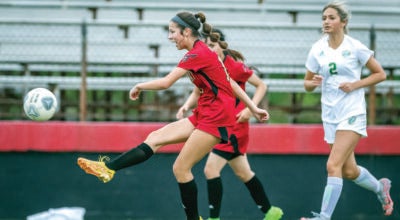Prep sports: State BOE says schools need to step up on injury treatment
Published 12:12 am Friday, April 3, 2015
The Associated Press
RALEIGH, N.C. (AP) — North Carolina schools will have to improve the quality of emergency help on hand when students suffer sports injuries, the State Board of Education determined Thursday.
State policy now requires schools to have a licensed athletic trainer or lesser-trained first responder on hand at all football practices and games. Those treatment workers must be certified in first aid and cardiopulmonary resuscitation and trained in concussion management and injury prevention. The first aid specialist can’t be one of the team coaches.
The new policy also directs local school districts to aim at having emergency workers available at the practices and games of all sports at both the high school and middle school levels, but puts no timeline on the goal.
The North Carolina High School Athletic Association keeps no injury statistics on the more than 220,000 boys and girls who participate in secondary school sports, spokesman Rick Strunk said.
A study by the University of Colorado found that of the estimated 7.8 million participants in high school sports nationwide in 2013-14, competitive football games had the highest injury rates. The most common high school injuries were strains or sprains, followed by concussions, the report funded by the Centers for Disease Control and Prevention said.
Limiting concussions in school sports is an upcoming focus for the North Carolina school board, which began discussing fines and other penalties against high school and middle schools that fail to follow the requirements of a 2011 law.
The Gfeller-Waller Concussion Awareness Act, named for boys in Winston-Salem and Greenville who died from head injuries suffered during high school football games, requires athletes showing symptoms to be pulled out of play immediately and to be examined before returning to the field.
The High School Athletic Association oversees enforcement of the law’s requirements. The state school board would allow the association to impose fines, for example $1,000 if a coach or other athletic staff member allowed a high school player to return to practice or games without a signed doctor’s clearance.
“We did not have sanctions in place that if you broke the law we could do anything beyond our general penalties. The state board asked us to get involved and create sanctions for noncompliance,” high school association Commissioner Davis Whitfield said.
A middle school player returning to competition without the form would be suspended for two additional games.





